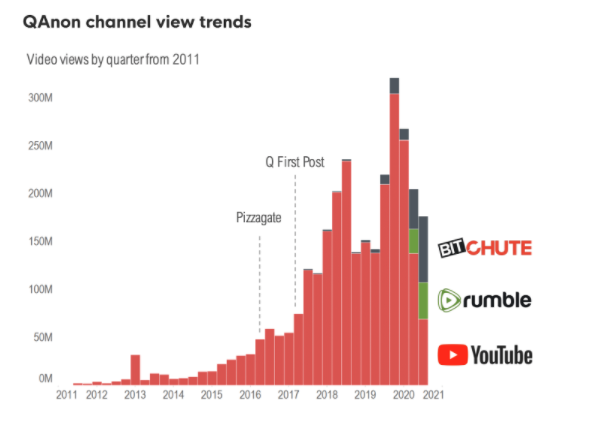Fox News host Tucker Carlson discusses 'Populism and the Right' during the National Review Institute's Ideas Summit at the Mandarin Oriental Hotel March 29, 2019 in Washington, DC. (Photo by Chip Somodevilla/Getty Images)
Unraveling viral disinformation and explaining where it came from, the harm it's causing, and what we should do about it.
Advertisement
It’s true the website QAnon.com doesn’t exist, and neither does QAnon.net or Qanon.org. But a Google search for “QAnon” returns just shy of 25 million related webpages, and many of them would have pointed Carlson and his team in the direction of 8kun, the website where the pseudonymous leader of the cult, known only as Q, has posted almost 5,000 messages.Or to one of the dozens of websites that are trying to cash in on QAnon’s popularity by cataloging those posts. Facebook and Twitter have removed a lot of the major QAnon accounts in recent months, but maybe Carlson’s team could have looked a little further, to say Telegram, which has become a hive of QAnon activity, and some of the biggest QAnon channels have hundreds of thousands of followers.
Advertisement
Advertisement


